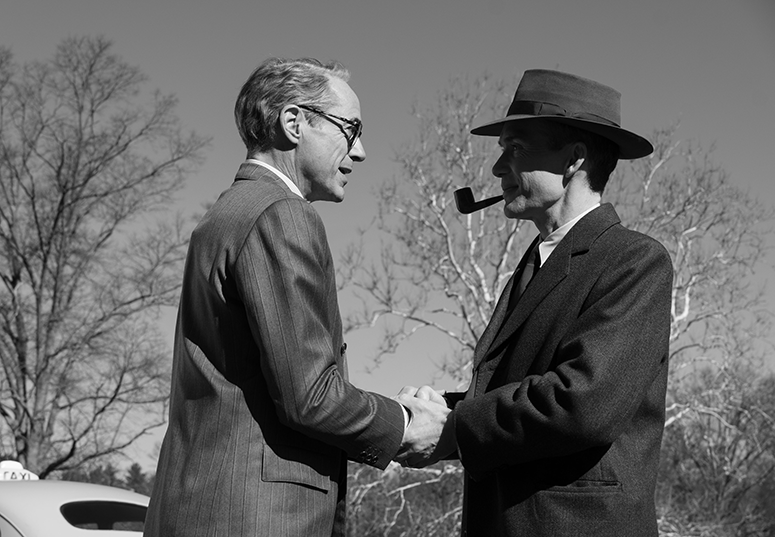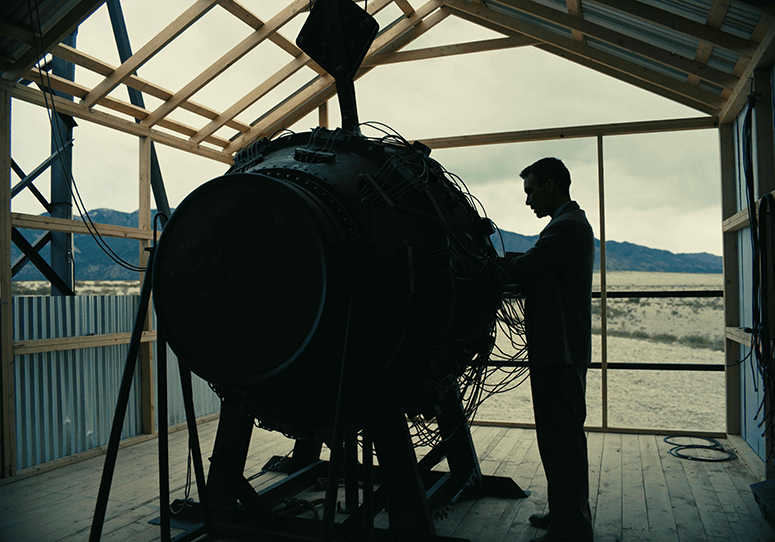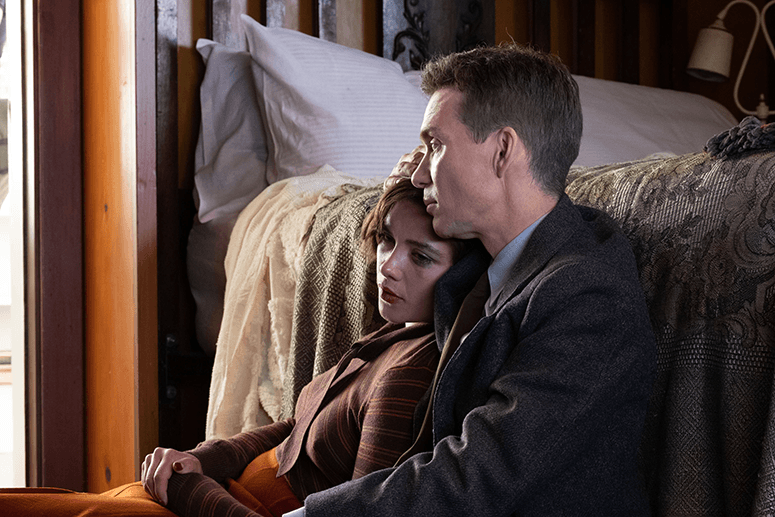Oppenheimer and the big bang
Rarely has an event in world history divided humans this much. I’m talking about the simultaneous release of Oppenheimer and Barbie, a fusion of opposites that resulted in an explosion of “Barbenheimer” memes online, and meant two screenings this week.
It’s not surprising that Robert J. Oppenheimer, the physicist credited with bringing the first atomic bomb to the world, is a divisive figure in history. As portrayed by Cillian Murphy in Christopher Nolan’s atomic biopic, Oppenheimer was himself divided over his actions. As the first A-bomb test is about to commence in Los Alamos, New Mexico, he mutters poetry under his breath, contemplating man’s future after the big blast: “I am become Death, destroyer of worlds” from Bhagavad-Gita, but also a bit of John Donne (“Batter my heart, three-person’d god”), an open invitation to the heavens to impress us with its awesome powers; to ravish us.

Nolan continues his cinematic march through WWII (after Dunkirk) with a scientific—and moralistic—query: Should man create something so destructive, just because he is capable? In that, Oppenheimer can’t help but echo the current debate on artificial intelligence, the majordomos of which operate in Silicon Valley, not a Los Alamos desert, frequently fretting about its potential doom web being cast upon mankind.
But even as we recognize that metaphorical echo in the first half of Oppenheimer, we are led deeper into the web of man knitting his own doom by an amazing cast that includes Robert Downey Jr., Florence Pugh, Emily Blunt, Gary Oldman, Matt Damon, Rami Malek, Josh Hartnett, Kenneth Branagh, Matthew Modine, and others. Shot on IMAX 65mm cameras, it’s an emotional blowout, particularly the moments surrounding that first desert test. The IMAX screen is filled to the brim with a nuclear blast that, while expected, sucks the air right out of you. Awe—a feeling of fear and reverence—is the only sensible reaction.

Nolan adapts the biography American Prometheus into a scenario split into two—the world before and after the first blast and subsequent use of two bombs on Japanese cities Hiroshima and Nagasaki, eventually killing 110,000 people. A key matter, as the Cold War commences in the late ’40s and Oppenheimer’s loyalty is questioned by the US, is when he came to decide against ramping up the lethal power of nukes to also include hydrogen-based weapons—as his colleague Edward Teller (Benny Safdie) strongly advocated.
Murphy gives probably his most thoughtful, conflicted performance onscreen here, even when his character is composed, internally locked down; Blunt plays his flawed but faithful wife (and has a great few moments, kicking against the State Department pricks).

Damon is on hand as the general who sets up the Manhattan Project in the desert, allowing Oppenheimer to select a team of “compartmentalized” brains who will each handle an aspect of testing and building the world’s first nuclear weapon.
The fact that the first manifestation of Albert Einstein’s calculations was a weapon of mass destruction is both pathetic and ironic. Einstein (Tom Conti) is seen here, roaming around the ponds of a top research campus run by scientist and future ruthless senator Lewis Strauss (Downey), sort of like a domesticated farm pet, shrugging and working his eyebrows at the unintended destruction derived from his quantum mechanics.
The second half (flipping to black and white at key moments) focuses on Oppeheimer’s role in advising the US as the Cold War solidifies into bigger and bigger bombs, budgets, and a policy of mutually-assured destruction (MAD) and deterrence. As the McCarthy Red Scare era looms, the scientist’s early flirtation with leftism is hammered—not so much by a three-person’d god, but by State Department apparatchiks and politicians seeking headlines. Oppenheimer’s passivity in the face of all this hammering is puzzling.

While Oppenheimer is no saint, the film makes clear he bears the mantle of his “Prometheus” role heavily. As atoms were split to create the first fission explosion, the scientist becomes a quantum world of internal strife. He points out the paradox as though trapped in a spell: “They won’t fear it until they understand it; they won’t understand until they use it.”
Scientists seem to have no choice but to pursue knowledge, whatever its use, and Nolan is no doubt reflecting somewhere in his screenplay on the current battle over A.I. and its threat to truth, its promise of economic upheaval, and reasonable questions over how it will deal with the tricky matter of illogical, flawed humans.

Metaphors are rife throughout folklore. Pandora and the box. Prometheus stealing fire from the heavens. But we need only look at earth and history for countless tales of mankind marching heedlessly down a path in the name of something else, some “betterment,” only to be stuck with a forever dilemma. We have all our mod cons—like aircon—at the expense of our very atmosphere and climate, for instance. Technological devices for the masses—tablets, smartphones—are mass-produced and assembled by a process of modern slavery (in places like China). So there’s always a tradeoff to seeking progress. We just always seem to forget—and regret—making the wrong choices.
Oppenheimer is an Oscar tour de force, and for a nearly three-hour film, it moves along at a fairly quick, though non-linear, gallop. Short scenes and whipsaw editing ensure this. There’s still a certain technological chilliness in Nolan’s direction, but it’s hard to dismiss the emotional core of the moment the film seems built around—that Los Alamos desert blast. It might not be a popcorn movie—except maybe for young physics students—but it’s a slice of history worth ruminating over, which has to be Nolan’s intention.
***
Oppenheimer opens in IMAX and other cinemas on July 19.


